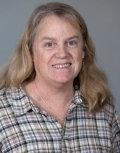为什么写作对你的学科/领域/职业很重要?
Writing is central to the field of education as it is through writing that we make sense of the world; learners use writing to think, to discover, to understand. 写作也是一种沟通手段,教师候选人必须表现出与家庭和社区沟通的写作能力, contribute to academic reports on students, 为代课教师撰写计划,并参与有关地区的专业写作, state and national levels.
Most importantly, writing is an art and a craft: We write to convey, to express, to inform, to entertain, to remember, to explain, to surprise, to examine, to teach, to convince, to persuade, 要分析……,未来的教师必须表现出在这些(和其他)写作领域的能力, ultimately, 他们将在课堂上为学生充当作家和写作的榜样.
哪些课程被指定为满足学科写作(WID)要求? Why these courses?
ELED 469 Seminar in Student Teaching (Elementary)
ECED 469 Seminar in Student Teaching (Early Childhood)
Both ELED 469 and ECED 469 are capstone courses. 他们概括了学生将在整个项目课程中从事的各种写作经验, culminating in the Teacher Candidate Work Sample (TCWS).
TCWS是一篇学术文章,讲述学生如何参与学习某一特定方面的内容, while also using writing to:
- Contextualize an educational setting
- Plan for lessons
- Analyze data in a variety of ways
- Explain a process of study
- Evaluate findings
- Reflect on decisions made and future directions
学生将在你们系的WID课程中学习和练习什么形式或类型的写作? Why these genres?
小学和早期儿童课程的学生应该期望参与三种写作:
- Academic (research papers, presentations, case studies)
- Professional (communication with students, families and community partners; philosophies of education and statements of belief)
- 反思性(为了指导教学而回顾教学/学习)
As they write in these three domains, students will have opportunities to practice other kinds of writing, including:
- Informational
- Persuasive
- Analytic
- Reflective
- Opinion
学生参与的所有写作都将帮助他们学习
- Chart growth in student learning over time
- 记录学生对写作内容、学科、类型态度的变化
- Offer suggestions about how to go forward
在你们系的WID课程中,学生会遇到什么样的教学实践?
在小学和幼儿课程的学生将体验, first-hand, 他们将要求学生进行写作练习:选择主题, one-to-one writing conferences with the professor; meeting in response groups in class to share writing and receive feedback; examining what makes a piece of writing effective – or not effective – and discussing why; reading model pieces in a variety of genres and discussing characteristics of effective writing; participating in the process of developing a rubric on which their own writing will be assessed – engaging in self-assessment, 然后反思题目设计和评估的过程,以及这对未来学生的工作意味着什么.
When they’ve satisfied your department’s WID requirement, what should students know and be able to do with writing?
They should know that writing has power: to inform, to instruct, to influence; that the genre and form depend on the purpose and audience; and that writing is a process which is recursive, not linear and it requires long, uninterrupted blocks of time.



